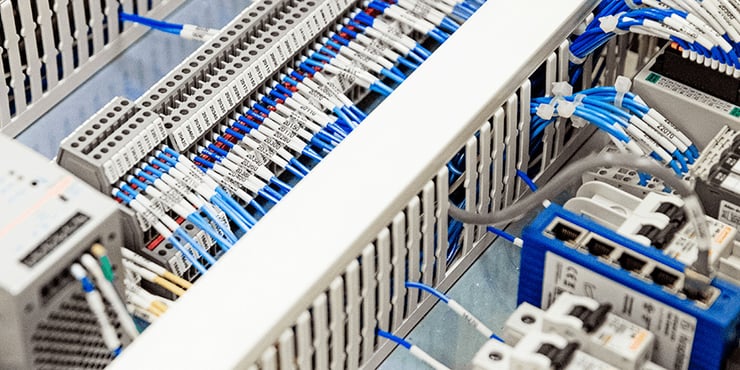At Separators, we like sharing our hard-won knowledge and automated centrifuge insights with our clients. That’s why we prodded one of our veteran automation engineers for some insights into why he thinks automation will continue to play a vital role in dairy production facilities.
Check out what we uncovered during our quick conversation.
Q: Hey! I know we're busy around the shop these days — thanks for taking the time to do this.
A: Well, we’re all lucky to be busy nowadays.
Q: Very true. Let’s jump into it. As an automation expert, how would you say automation in a dairy plant impacts production?
A: In a word? Automation impacts dairy with repeatability. Being able to repeat a consistent process provides quality. Within an automated dairy system, quality is guaranteed because industrial automation controls are so consistent.
Q: How does automation make life easier for plant workers?
A: It's always a fine line between having a strong automated facility and having the ability to support that automation. You eliminate low-paying repeatable jobs and replace them with highly trained service technicians and plant engineers.
Building automation controls into your dairy system will shift your hiring focus towards technician and engineering jobs. These employees will partner with and support the automation to maximize production efficiency.
Q: What's one thing you wish dairy plants knew about automation?
A: Being able to process 24/7 and provide quality repeatability is key. It's needed for quality control. With automation, you'll know a Reese’s peanut butter cup will taste the same 20 years from now.
Simply said, round-the-clock automation controls guarantee your products will always be of the highest and most consistent quality for the long term.
Q: Good. That means I won't be telling my grandkids down the road that “peanut butter cups tasted better back in my day!”
A: Well, if something does change, then maybe you should double-check your local plant’s automation system.
Q: With that in mind, what are the top technologies dairy plants should be considering today?
A: I see more and more plants using turbidity sensors. That's because in-line optical turbidity instruments placed in process lines and discharge lines can boost efficiency and save money.
Having the ability to monitor process lines helps with waste. Putting [turbidity sensors] on discharge lines to the city or to your own plant’s wastewater facility is making more sense. Putting them near a divert line can save you thousands on city sewer charges.
Q: So, what’s the best way to get automation in a currently non-automated dairy facility?
A: In my opinion, it starts with a new piece of equipment. Buying something with a PLC (Programmable Logic Controller) and an HMI (Human Machine Interface) is a good booster into automating further processes. Wanting different stand-alone machines to communicate together is typically a desire that can be handled internally or through a trusted integrator. Separators can partner with integrators around the country to handle most of your needs.
Just remember — when beginning to automate your dairy facility, do your research and make sure to purchase equipment that will easily integrate into future automation needs. In order to integrate a network of equipment that communicates throughout your facility, consider choosing a company that can fulfill both your equipment and engineering requirements.
Q: That’s a lot of information. I think I might need to talk to an expert.
A: [Laughs] That’s what we’re here for!
Looking to get automated?
More and more plants are investing in high-level technical and control support, building automation systems, and implementing equipment and system upgrades.
Whether you need high-level, complicated automation troubleshooting or are looking for technician training to bridge valuable knowledge between technicians and developers, we are always pushing to constantly improve system quality and efficiency.
And if you’re looking to automate your dairy processes, we're here to answer your questions. We handle the technical aspects so that you can figure out the best automation upgrades for your facility. With the help of a low-pressure, high-expertise support system, we make automation painless.


